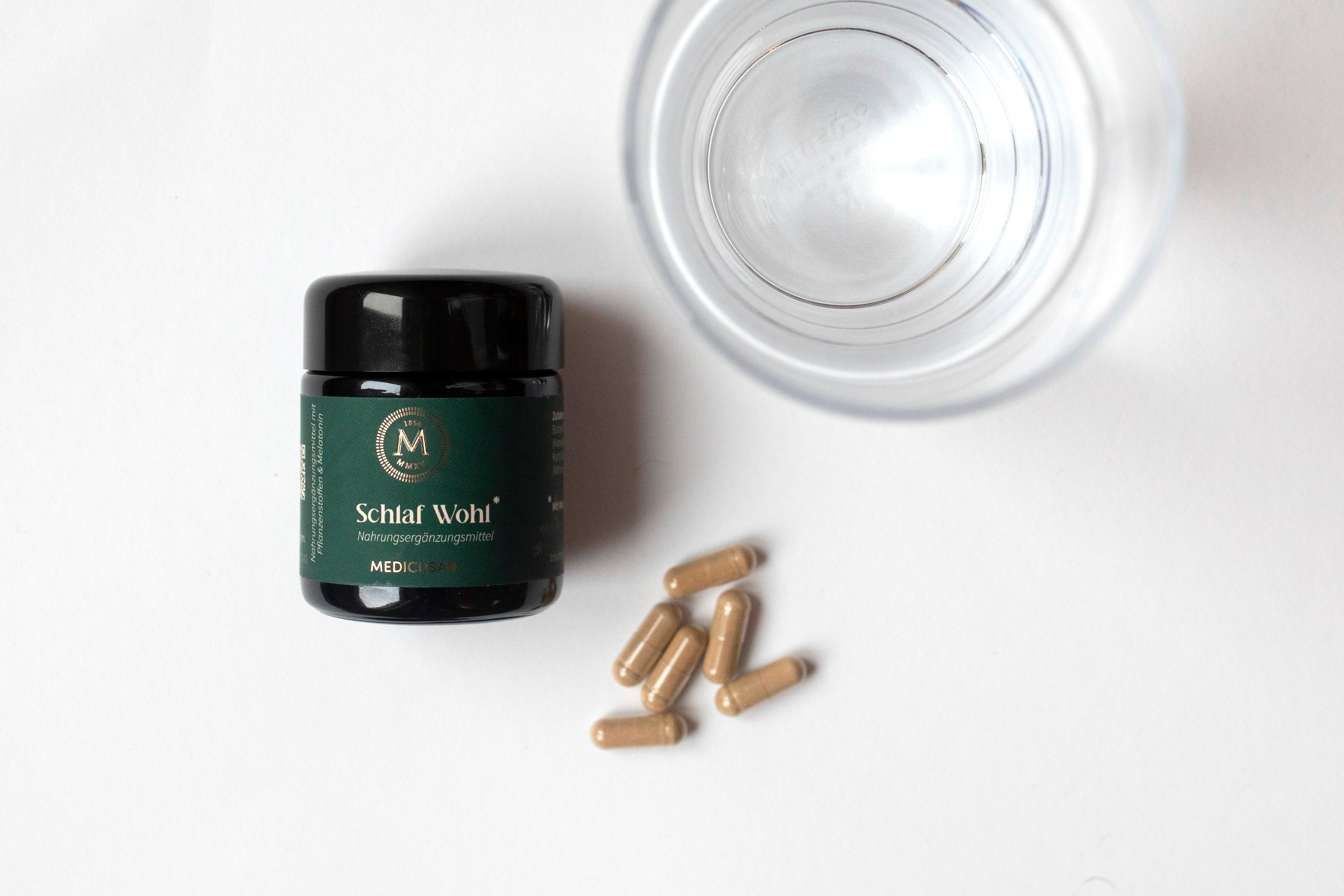
Does man need nutritional supplements?
Over 15 years ago, images of Americans swallowing pills - a jar full of nutritional supplements - went around the world. We laughed at them back then, but today this is also an image we see here. Nutritional supplements are increasingly finding their way into our homes. But how important are nutritional supplements really?
Hardly any other topic is as polarizing as this one - is a balanced and healthy diet sufficient to cover our needs for all vitamins, vital substances and minerals, or should we give our body and, above all, our health a helping hand with food supplements? Hand on heart, even with all your good intentions and efforts, do you manage to eat the recommended minimum amount of five portions of fruit and vegetables every day? If not, then you are like around 86.9 percent of all Germans who eat too few vegetables and therefore do not meet their required vitamin intake. But it is not just eating habits that play an important role; factors such as allergies or intolerances, highly processed foods, stress or taking medication (including the contraceptive pill) make an additional increased intake of vitamins and minerals just as necessary as exercise.
This is where nutritional supplements come into play - products that contain vitamins, minerals, proteins, microorganisms, enzymes and other nutrients and plant substances, available in various forms such as tablets, capsules, powders or liquids, help to close these gaps. For example, certain nutritional supplements can help to improve general well-being, promote physical and mental performance and prevent (chronic) diseases that can be traced back to years of vitamin deficiency.
Vitamins and co. & their health-promoting properties. One of the most common examples is vitamin C, which is widely known for its immune-boosting properties and can help prevent colds and infections. Omega-3 fatty acids, on the other hand, can support heart health and reduce inflammation in the body. Antioxidants such as vitamin E and selenium can help reduce cell damage and reduce the risk of chronic diseases. Vegetarians or vegans, on the other hand, benefit from vitamin B12 or iron supplements, as these nutrients are mainly found in animal products. And countless blog articles could also be written on the subject of vitamin D, which cannot be absorbed through food but is only formed by sunlight.
There are many good reasons to take a closer look at your own lifestyle and listen to your own body. Even if, in medical terms, an acute deficiency is only referred to when a maximum level is reached, such as scurvy (vitamin C deficiency) or loss of vision (vitamin A deficiency), an increased need for vitamins or minerals becomes apparent much earlier in various forms. The spectrum ranges from constant tiredness despite sufficient sleep and rest periods, sleep disorders and concentration problems to impaired wound healing, depressive moods, weak muscles and susceptibility to infection.
Holistic & complex. What all of these symptoms have in common is the fact that they represent multifactorial problems, i.e. they are influenced by many individual circumstances such as diet, exercise, sleep, stress levels, etc. In order to turn the right wheels, a holistic approach to the body and health is recommended, which not only addresses the acute deficiencies, but also relies on a smart and innovative combination of different active ingredients and plant substances in order to support and strengthen the body and mind effectively and, above all, holistically. Especially with regard to these holistic effects, it is particularly important to find the right product and the right experts behind it, because not every dietary supplement keeps what it promises.
Whether a jar full of pills is necessary is debatable, but dietary supplements can definitely make an important contribution to your body and your well-being, provided the ingredients are of the highest quality and the raw materials are neither under- nor - and this is much more worrying - over-dosed, and are therefore certainly an investment that is worthwhile in any case.
We would like to recommend the following further specialist articles and studies on this topic:
- https://www.zentrum-der-gesundheit.de/krankheiten/weitere-erkrankungen/mangelerscheinungen/vitaminmangel
- Cunningham-Rundles, S. & Ho Lin, D. (2007): Malnutrition and infection in industrialized countries. doi:10.1007/978-3-7643-8099-1_5
- Strasbourg A. et al. (2019): Comparison of food consumption and nutrient intake assessed with three dietary assessment methods: results of the German National Nutrition Survey II, European Journal of Nutrition, 58, 193–210, 2019, https://doi.org/10.1007/ s00394-017-1583-z.
- Troesch B. (2012): Dietary surveys indicate vitamin intakes below recommendations are common in representative Western countries. Br J Nutr. 2012 Aug;108(4):692-8. doi: 10.1017/S0007114512001808.
- Whatham A et al. (2008): Vitamin and mineral deficiencies in the developed world and their effect on the eye and vision. Ophthalmic Physiol Opt. 2008 Jan;28(1):1-12. doi: 10.1111/j.1475-1313.2007.00531.x.